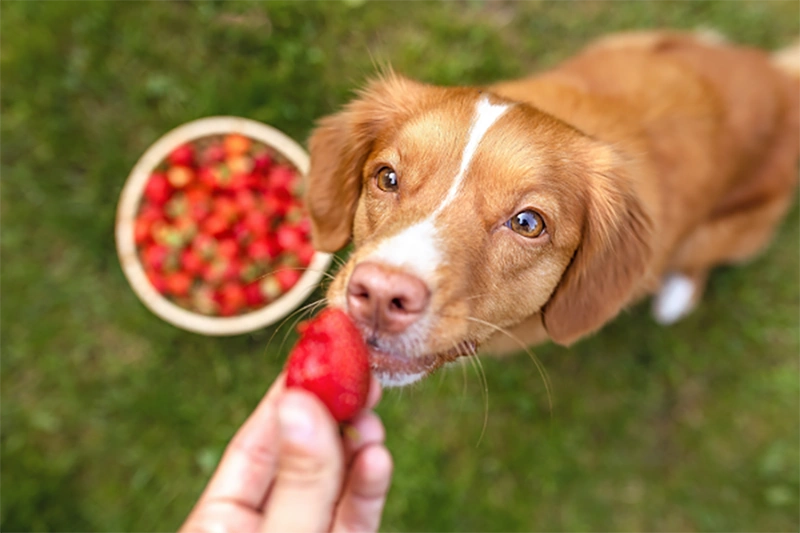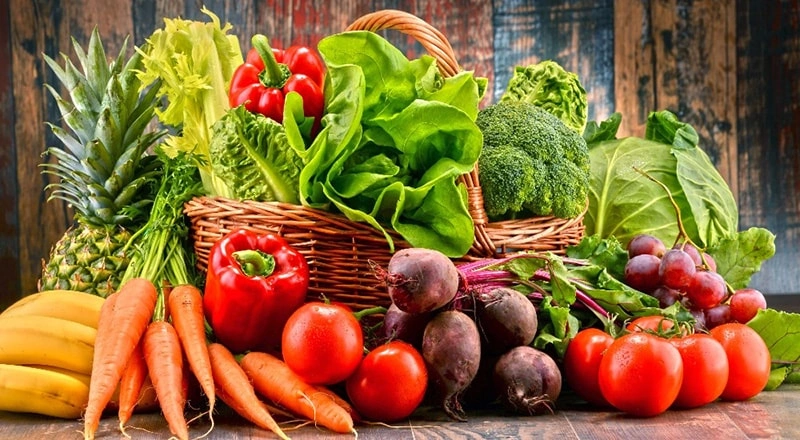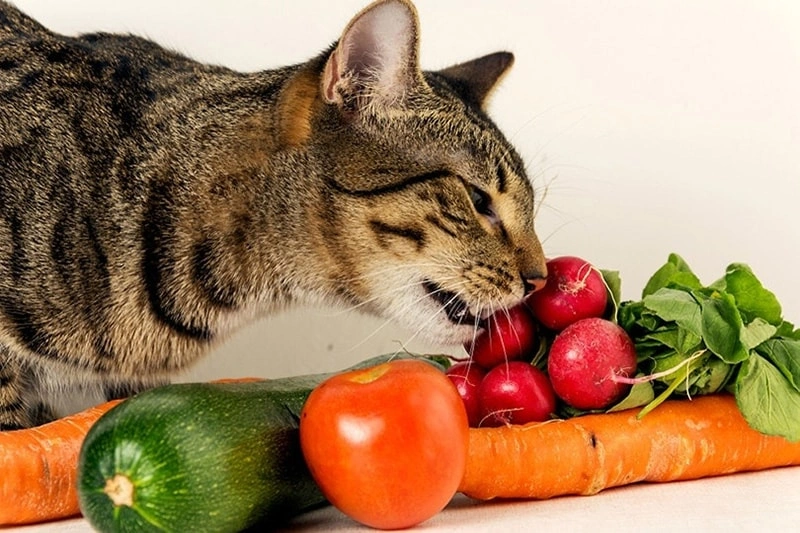
Just like humans, our furry friends can benefit from the fiber, vitamins, and antioxidants found in many common fruits and vegetables. Sharing your garden spoils can be a great way to give your pet a healthy, low-calorie treat. However, the nutritional needs of dogs and cats—especially the highly carnivorous cat—differ significantly, and the safety rules are absolute. Knowing what's safe and what’s toxic is the foundation of mindful pet parenting across every life stage.

When prepared properly (peeled, cooked, or cut into small pieces), many plant-based foods offer excellent nutritional boosts for both dogs and cats.
· Pumpkin (Cooked, Plain): A true digestive superstar. It’s high in soluble fiber and helps regulate the digestive tract, making it useful for both diarrhea and constipation. This is particularly great for Senior Pets needing regular support.
· Green Beans and Carrots: These offer a satisfying crunch and are excellent, low-calorie treat alternatives. They provide fiber and vitamins and are great for Adult Pets where portion control is key.
· Blueberries and Raspberries: These small berries are loaded with antioxidants, which help fight oxidative stress and support the immune system—a benefit crucial for Adult and Senior Pets alike.
· Watermelon (Seedless) and Cucumber: Mostly water, these are fantastic for hydration. They are especially beneficial for Senior Pets who might not be drinking enough water to support kidney function.
· Papaya: This tropical fruit is rich in vitamins A, C, and E, and contains the enzyme papain, which can aid in digestion. Always peel the fruit and remove all seeds before offering it to your pet.
· Mung Bean Sprouts: While the whole bean is too dense, the sprouts are much easier to digest. They should be cooked lightly to maximize safety and nutrient absorption.
These foods are safe only if specific preparation steps are followed or if they are strictly limited in quantity.
· Sweet Potatoes and Potatoes: These must be cooked and served plain. Raw potatoes contain toxic oxalates. Cooked sweet potatoes, however, are highly digestible and offer great fiber.
· Apples: The flesh is safe, but you must remove all seeds and the core. Apple seeds contain trace amounts of cyanide.
· Broccoli, Cauliflower, and Bananas: These are generally safe in very small, occasional amounts. Giving large quantities of cruciferous vegetables (like broccoli) can cause significant gas and digestive upset. Bananas are high in sugar and should only be a tiny, rare treat.
It is vital that pet parents know the absolute no-gos, as these can cause severe illness or death in both dogs and cats. If your pet ingests any of these, contact your veterinarian immediately.
· Grapes and Raisins: These are highly toxic to both species and can lead to acute kidney failure. There is no known safe amount.
· Onions, Garlic, Chives, and Leeks (Allium Family): These contain compounds that can damage a pet’s red blood cells, resulting in life-threatening anemia. NEVER feed them, raw or cooked.
· Avocado: Contains a toxin called Persin, which can cause vomiting and diarrhea. The high fat content is also dangerous for some dogs, potentially leading to pancreatitis.
· Cherries: While the flesh is somewhat safe, the pits, stems, and leaves contain cyanide and should be avoided completely due to the high risk of accidental ingestion.

As with any change in diet, moderation and balance are non-negotiable. Fruits and vegetables should serve as an occasional treat, comprising no more than 10% of your pet's total daily calorie intake. The majority of their diet must come from a complete and balanced food tailored to their life stage.
Always remember the principle of Observation—a critical part of wellness beyond the bowl. When introducing a new food, start with a tiny amount and monitor your pet for any signs of digestive distress. This thoughtful, stage-appropriate approach ensures that treats contribute positively to your furry friend's lifelong vitality and well-being.
References
Tresch M, Mevissen M, Meli ML, et al. Medicinal plants as therapeutic options for topical treatment in canine dermatology?—A systematic review. BMC Vet Res. 2019;15:174.
Muller C. The role of nutrient analysis in the development of pet food. J Food Compos Anal. 2013;30(1):1-6.
Morris JG. Why cats require special dietary consideration. Nutr Res Rev. 2002;15(2):197-208.
Hinchcliff KW, DiCicco M. The effects of different dietary fiber sources on the apparent digestibility of nutrients in dogs. Res Vet Sci. 2017;112:1-7.